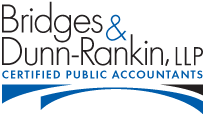F-reorg Structure for Sale of S-corp Business
By Kenneth H. Bridges, CPA, PFS December 2021
Buyers of businesses generally desire a deal structure that will be treated as an asset acquisition for income tax purposes. This is because they want to be able to depreciate or amortize the purchase price over a period of years (typically 15 years or less), rather than just have the purchase price sit on the balance sheet with no related income tax deductions.
If the seller is a C-corp, then generally this desire on the part of the buyer cannot be accommodated, as such would result in two levels of tax to be incurred by the seller (once at the entity level and then again at the shareholder level). In this case, the seller may suffer a price reduction or find that a deal simply cannot be done.
With an LLC taxed as a partnership, the buyer can get a basis step-up in the assets via a “Section 754 election” if buying less than 100% of the LLC units, or will automatically achieve asset acquisition treatment if purchasing 100% of the LLC units (Rev. Rul. 99-6).
If the business is conducted by an S-corp, there is no “Section 754 election” step-up available and no automatic deemed asset acquisition treatment for purchase of 100% of the stock, but asset acquisition treatment can be achieved either via a direct acquisition of assets, a “Section 338(h)(10) election”, or an “F-reorg” structure.
In recent years, most of the S-corp acquisitions we have seen have utilized the “F-reorg” structure. The name comes from Internal Revenue Code Section 368(a)(1)(F), which provides that “a mere change in identity, form, or place of organization of one corporation, however effected” qualifies for tax-free treatment. In Revenue Ruling 2008-18, the IRS provided that where the shareholder of an S-corp forms a new holding company, contributes to it the stock of an S-corp, and has the new parent company make a Qualified Subchapter S Subsidiary (QSub) election for the old S-corp, then the new holding company will be automatically treated as an S-corp, and the QSub will retain its EIN.
In a typical F-reorg structure acquisition, the shareholders of the target S-corp form a new holding company, contribute to it the stock of the target company, file a QSub election (Form 8869) for the target company, convert the target company to a state law LLC, and then have the new holding company sell the target company units to the buyer. While legally a stock sale, this is treated for income tax purposes as an asset sale. This gives the buyer the desired income tax treatment, but should, in most cases, avoid the need to assign contracts.
The F-reorg structure is more flexible than a 338(h)(10) election in that it does not require purchase of least 80% of the stock (a requirement for making the (h)(10) election), it works well where there will be rollover equity retained by the seller, and it enables the buyer to minimize the risks associated with possible invalid S election on the part of seller.
From the seller’s perspective, the income tax result of an F-reorg structure is generally largely the same as that of a straight sale of S-corp stock; with some nuanced differences. The deemed asset sale treatment can result in some ordinary income for the seller (e.g. cash basis receivables and depreciation recapture), and higher state income tax may be incurred if the entity conducts business in states with a higher tax rate than that of the seller’s state of residence. Sometimes buyers will agree to gross the seller up for some or all of this incremental tax cost; which typically is small compared to the tax advantage the structure provides for the buyer.
Kenneth H. Bridges, CPA, PFS is a partner with Bridges & Dunn-Rankin, LLP, an Atlanta-based CPA firm.
This article is presented for educational and informational purposes only, and is not intended to constitute legal, tax or accounting advice. The article provides only a very general summary of complex rules. For advice on how these rules may apply to your specific situation, contact a professional tax advisor.
